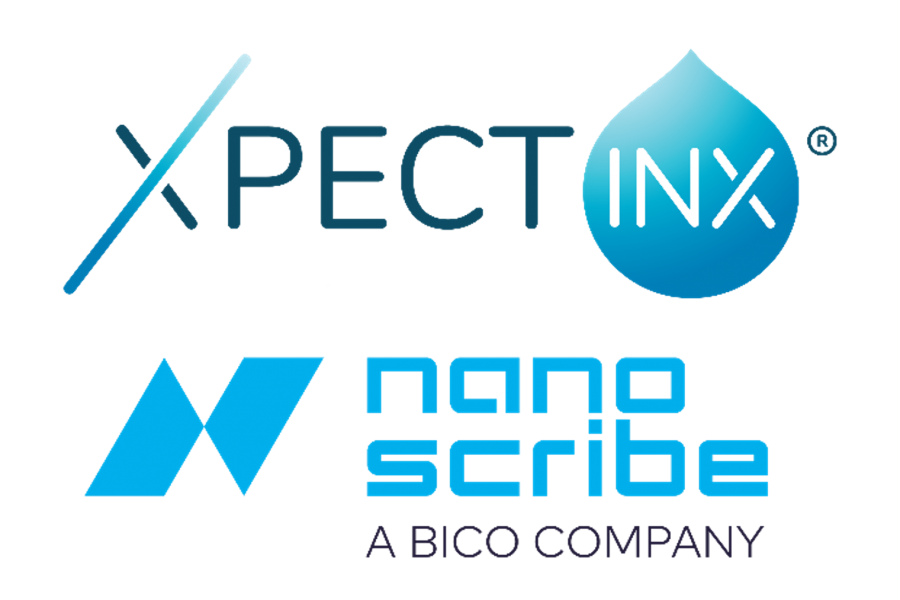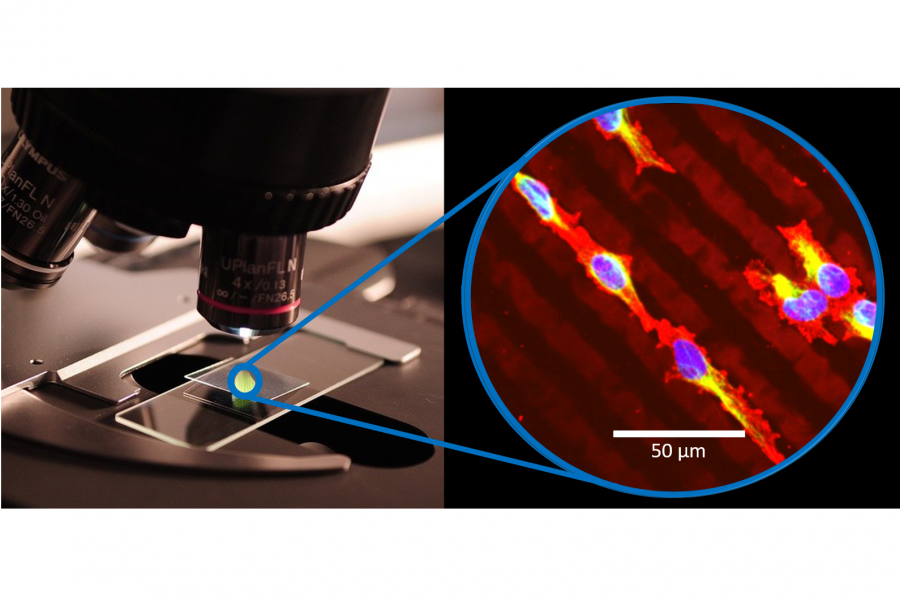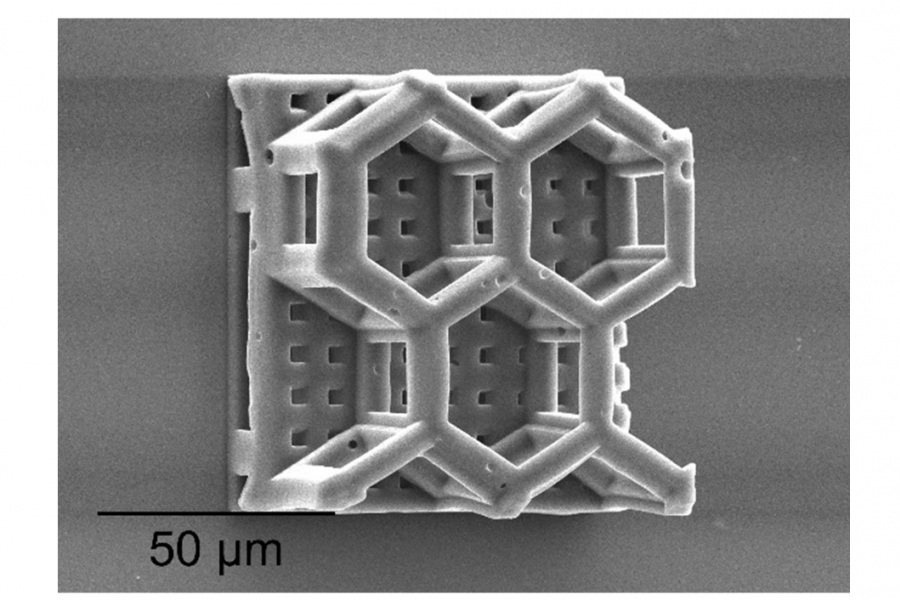XPECT INX joins into distribution agreement with Nanoscribe
Xpect INX (Gent, Belgium) and Nanoscribe (Karlsruhe, Germany) join in a distribution agreement via the launch of a whole portfolio of biocompatible materials for high resolution Biofabrication. Biofabrication is the field of 3D printing cells and tissues. Here, high resolution printing (microfabrication) is extremely useful to mimic the microcellular environment. In this respect, two-photon polymerization is of specific interest as it allows 3D printing at unprecedented resolutions down to the nanoscale.
To this day, biocompatible materials for high resolution additive manufacturing are very rare. Until now! Xpect INX, which is an expert in the development of biomaterials and bioinks for 3D bioprinting, joins in a distribution agreement with Nanoscribe, world leader in the field of two-photon polymerization equipment.
“We believe that this agreement with the market leader in microfabriation will really open up the application potential of the biofabrication technology, as high resolution is key for multiple applications including organ-on-chip for drug screening,” comments Jasper Van Hoorick, project lead at XPECT INX. “By offering a whole range of next generation high resolution bioinks, we believe that we can induce a paradigm shift in the field of microfabrication.”
Cellular roadmaps
The potential of printing at (sub-)cellular resolutions, also enables control over cellular migration and alignment. To this end, the technology has potential to generate highly aligned cellular structures. This feature can be of great importance the formation of microvascular systems or nerve tissue regeneration.
Organ-on-Chip
Currently, there is a high need to find alternatives for animal testing in the field of drug and cosmetics development. To this end, a new technology is emerging called organ-on-chip, where small representative tissues are present in a microfluidic chip enabling fast and efficient screening of the components of interest. In this field, a paradigm shift can occur via high resolution additive manufacturing. To this end, two-photon polymerization is the only technology enabling direct printing within the microfluidic chip, thereby reducing risks related to leakage and improving the efficiency. Thanks to the pioneering role of Nanoscribe, the processing technology has already been around for over a decade. However, up until now the biocompatible materials were still lacking. The combination of the biocompatible, cell interactive materials of XPECT INX, with the manufacturing precision of Nanoscribe, can really boost this field.
A whole new portfolio of state-of-the-art materials optimized for the Nanoscribe Photonic Professional GT2
Via this agreement, three new complementary bioink formulations will become available to the public.
HYDROBIO INX© N100 is a gelatin based bioink kit, resulting in exquisite biocompatibility and cell interactivity. The material is an ideal mimic of the natural extracellular environment. Therefore, it is the perfect solution for applications requiring cell interactivity.
HYDROTECH INX© N100 is a very robust synthetic hydrogel, which is processed in the solid state thanks to XPECT INX’ patented Curasol® technology. As a result, constructs can be printed with a high degree of architectural freedom, as printed structures are supported by the uncured solid resin. After immersion in an aqueous environment, a very robust hydrogel is obtained.
DEGRAD INX© N100 is the first biodegradable polyester-based synthetic two-photon polymerization resin. It combines biocompatibility with flexibility and easy processing thanks to the Curasol® technology, resulting in high feature resolutions (<500 nm).
“Despite the huge interest, it remains a challenge to our customers to develop their own hydrogels and bioprinting materials. We are very happy to partner with Xpect INX to commercially provide such materials and therefore save our customers a lot of time and effort,” says Patrick Müller, product manager at Nanoscribe. This versatile bioink portfolio will form a great addition to the already existing high performing resins of Nanoscribe.
About XPECT INX
Xpect INX is a spin-off project from Ghent University focusing on the development of biomaterials for 3D-bioprinting applications. Based on years of experience in bio-ink development, Xpect INX offers and develops a whole range of ready to use (bio)inks for different 3D-printing technologies, including 2PP, DLP and deposition based 3D-printing.
Contact details XPECT INX
Dr. Jasper Van Hoorick, Project Lead
Jasper.Vanhoorick@xpect-inx.com
About Nanoscribe
Nanoscribe develops and produces 3D printers and maskless lithography systems for microfabrication as well as specially developed printing materials and application-specific solution sets. The specialist for additive manufacturing of high-precision structures and objects on the nano-, micro- and mesoscale was founded in 2007 as a spin-off of the Karlsruhe Institute of Technology (KIT) and has been part of the BICO Group (formerly CELLINK Group) since June 2021.
Contact details Nanoscribe
Dr. Alena Kirchenbauer, PR & Content Marketing Manager
+49 721 981 980 502



